Find Help
More Items From Ergsy search
-
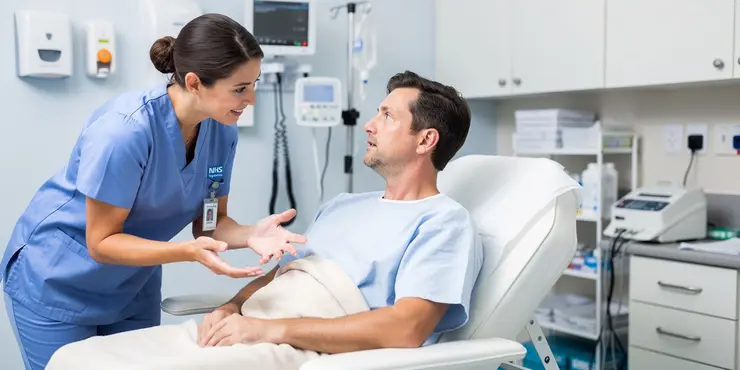
Your Visit to the Endoscopy Unit at NHS Tayside
Relevance: 100%
-
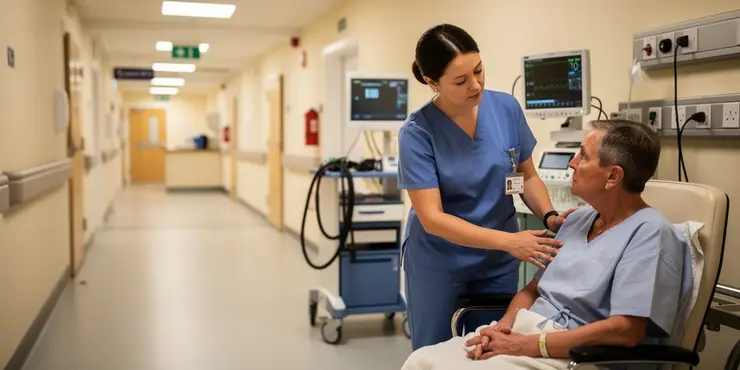
Endoscopy Unit
Relevance: 84%
-
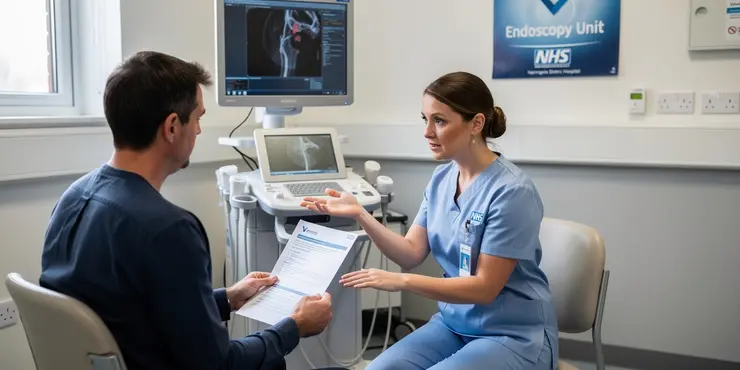
Coming to the Endoscopy Unit at Harrogate District Hospital
Relevance: 76%
-
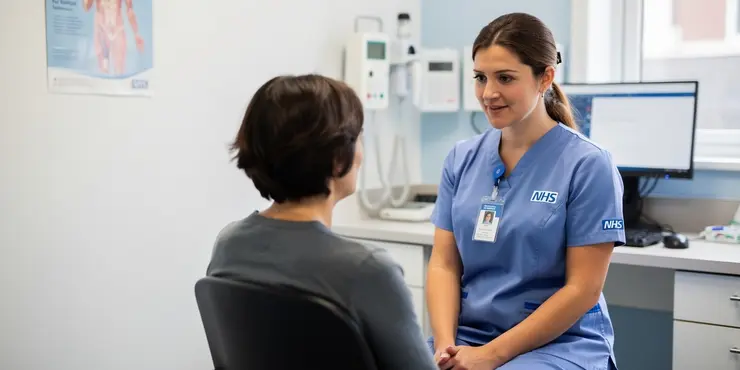
MTW Endoscopy service and training hub
Relevance: 58%
-
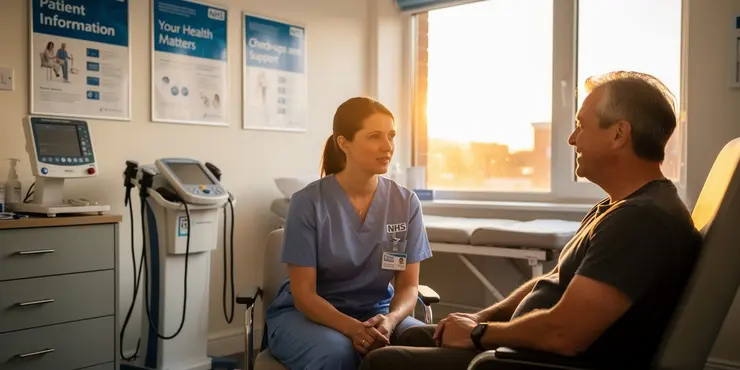
What is an endoscopy?
Relevance: 55%
-
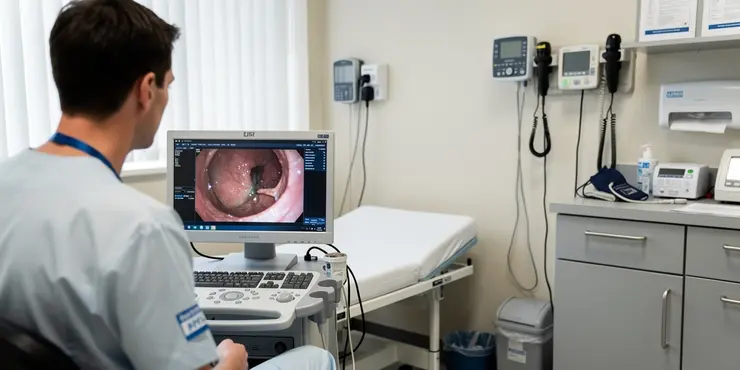
Endoscopy video preview
Relevance: 55%
-
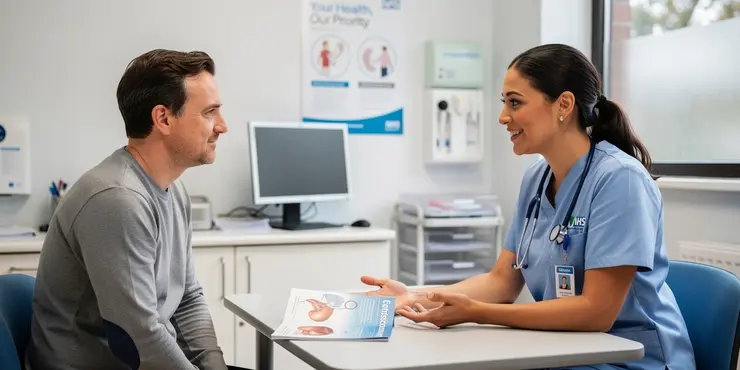
Endoscopy Introduction - The Patient Journey
Relevance: 52%
-
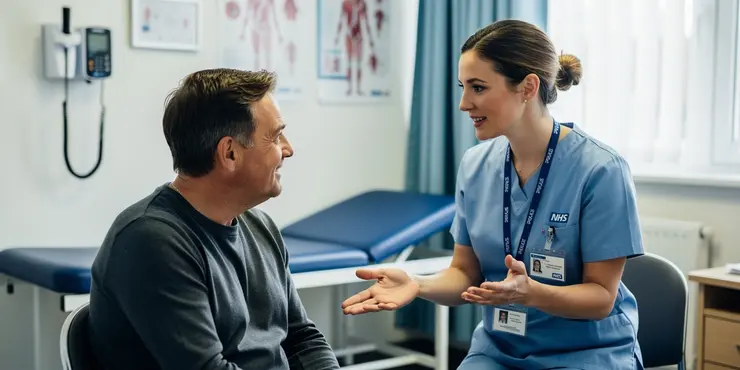
Mark Lancaster Patient Experience Leeds Endoscopy
Relevance: 52%
-
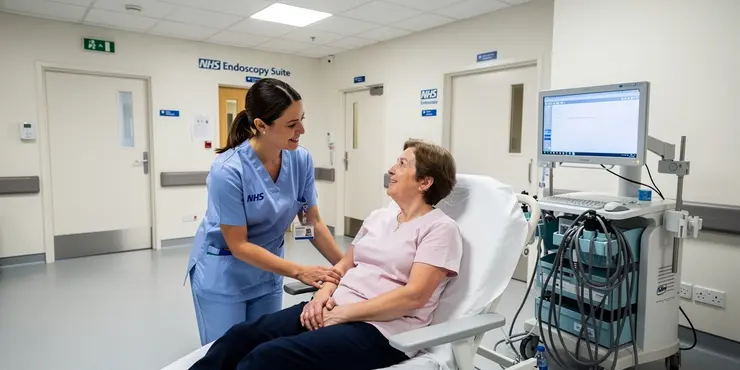
A guide to the new Endoscopy Suite at Chesterfield Royal Hospital NHS Foundation Trust
Relevance: 47%
-
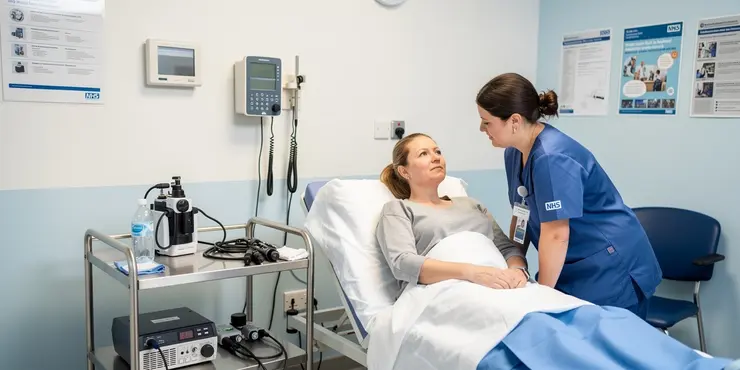
Bournemouth Digestive Diseases Centre: Endoscopy Procedure
Relevance: 47%
-
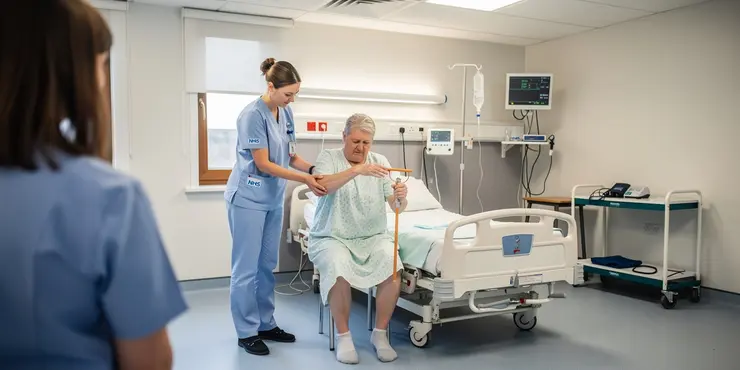
Vale Stroke Unit
Relevance: 40%
-
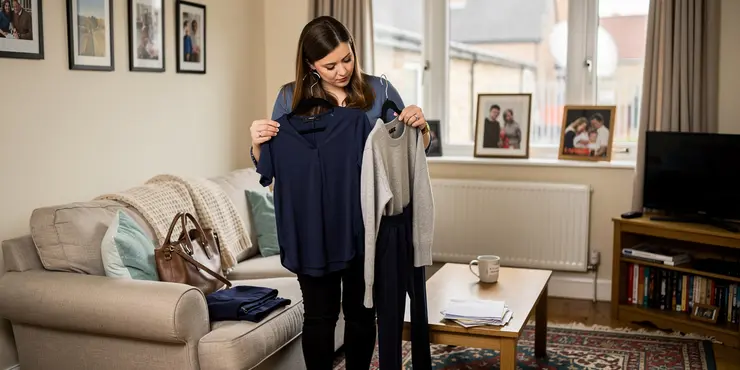
Visiting a Prisoner - What To Wear on a prison visit
Relevance: 38%
-
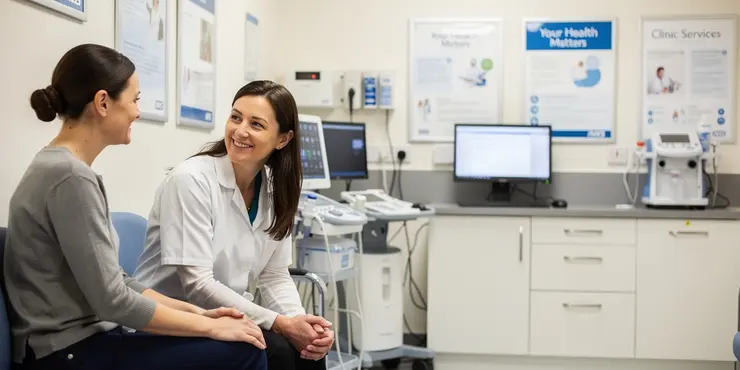
Endoscopy Procedures | Colonoscopy
Relevance: 37%
-
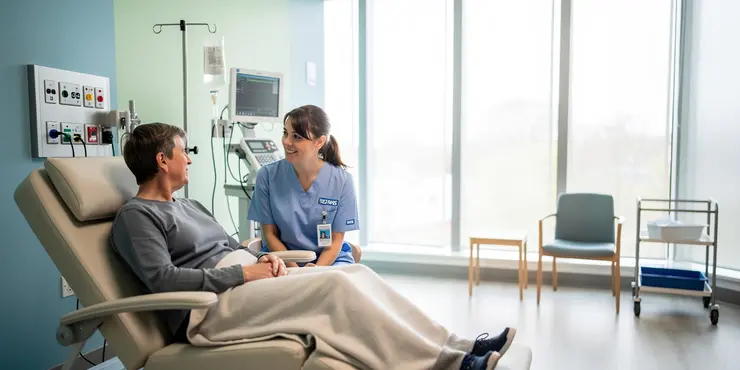
Having chemotherapy and other treatments in the Day Treatment Unit
Relevance: 33%
-
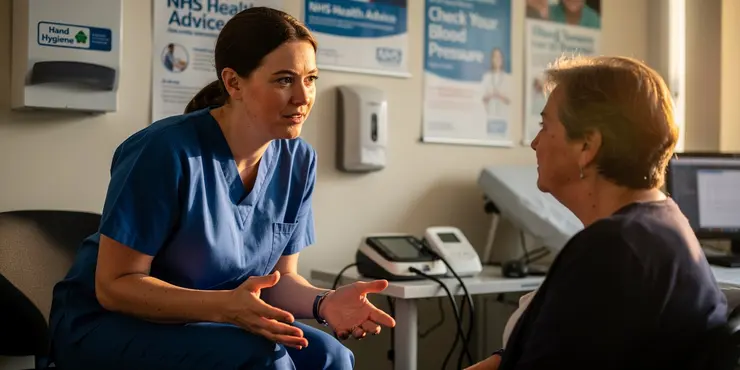
Are there mosquitoes in the United Kingdom?
Relevance: 32%
-
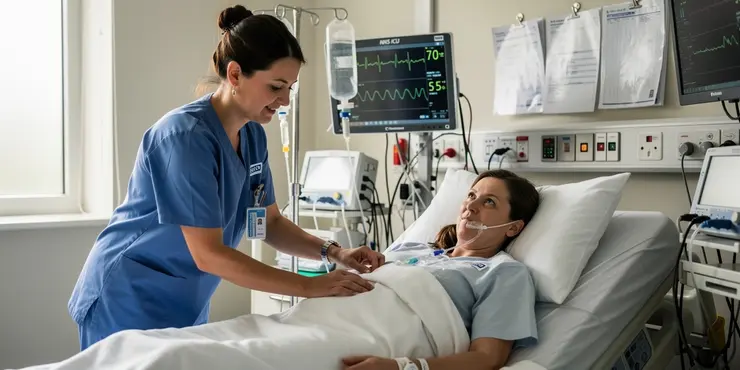
Your stay on the Intensive Care Unit at North Bristol NHS Trust
Relevance: 32%
-
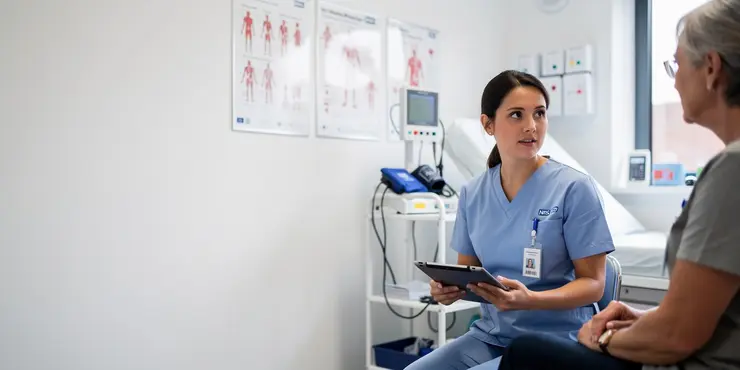
Are there Mosquitos in the United Kingdom?
Relevance: 32%
-
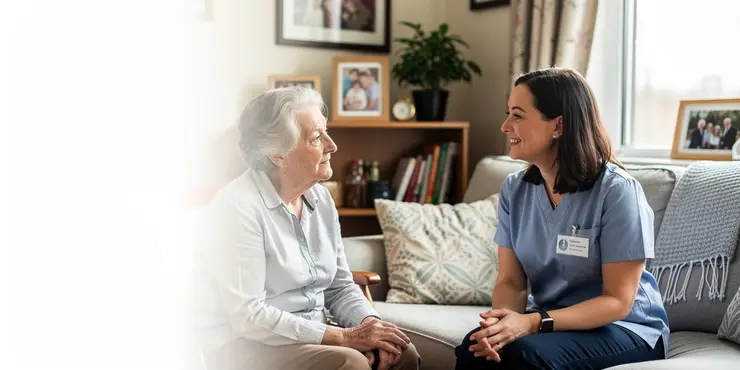
What are the visiting hours for care homes?
Relevance: 31%
-
How often should I visit the dentist?
Relevance: 31%
-
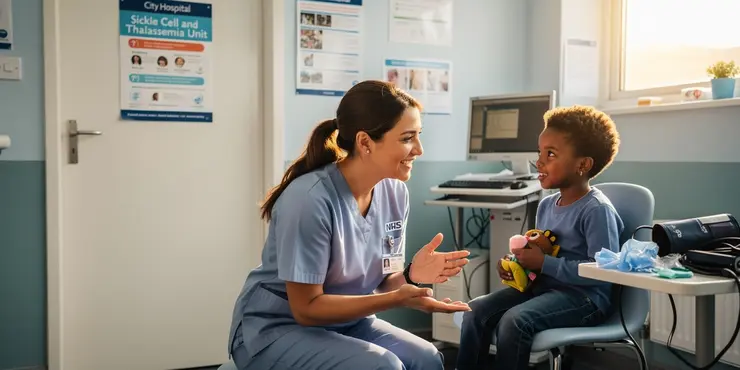
Tour of the Sickle Cell and Thalassaemia Unit at City Hospital | SCaT
Relevance: 30%
-
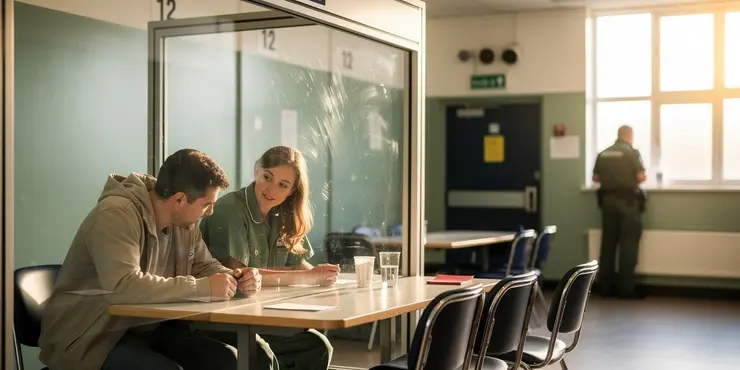
How often can I visit someone in prison?
Relevance: 30%
-
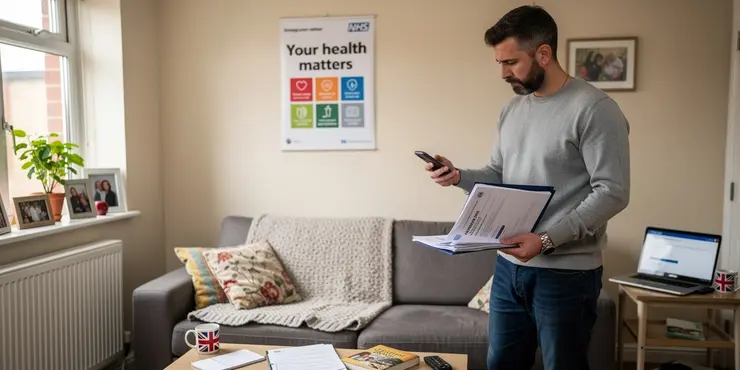
Can I visit a USCIS office to inquire about my immigration status?
Relevance: 30%
-
What is the impact of the 2026 changes on grandparent visitation rights?
Relevance: 30%
-
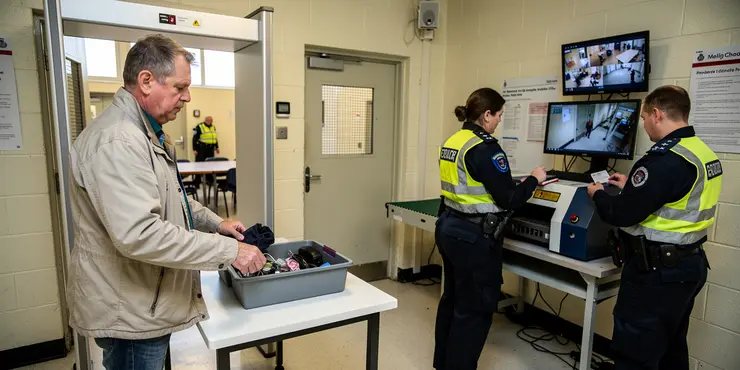
What should I expect when visiting a prison?
Relevance: 30%
-
How often should I visit my NHS dentist?
Relevance: 29%
-
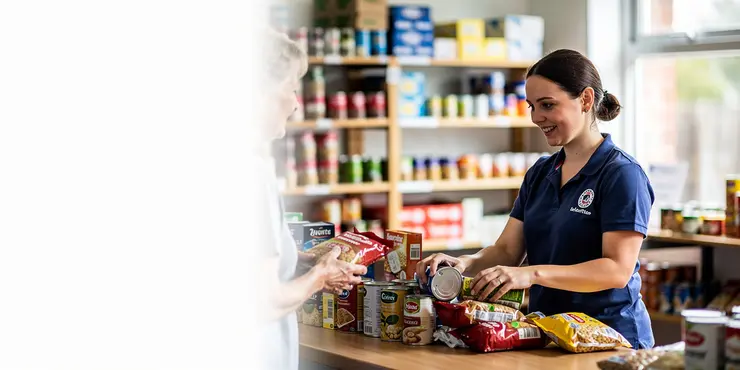
How often can I visit a food bank?
Relevance: 29%
-
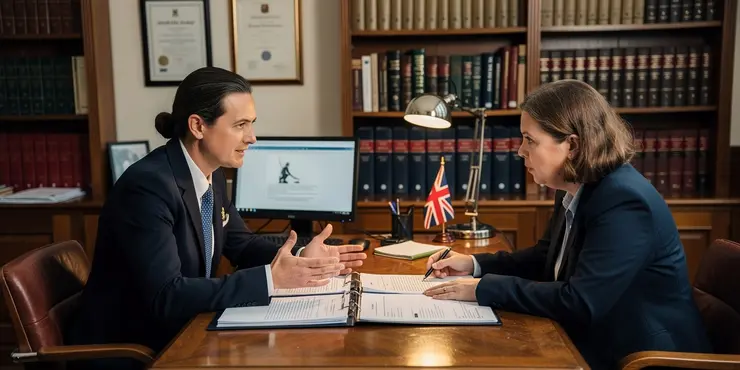
Is ketamine considered a controlled substance in the United States?
Relevance: 29%
-

Is childhood obesity a concern in the United Kingdom?
Relevance: 28%
-
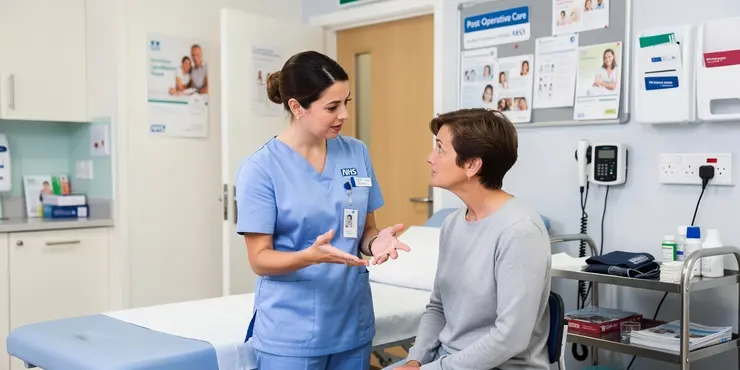
Will I need a follow-up visit after my hair transplant in Turkey?
Relevance: 28%
-

Navigating Child Custody and Visitation Rights in Modern UK
Relevance: 27%
-
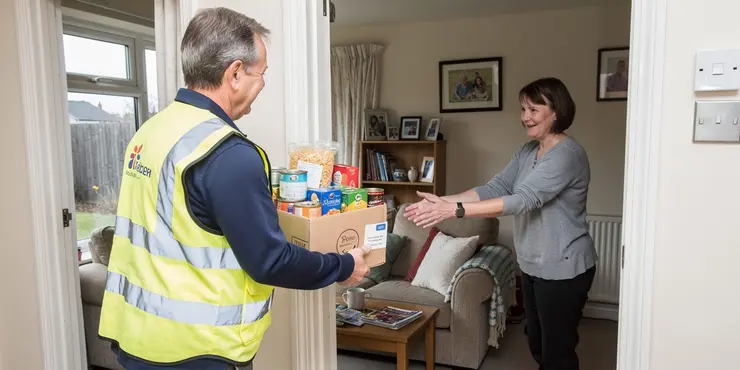
What if I can't physically visit a food bank?
Relevance: 27%
-
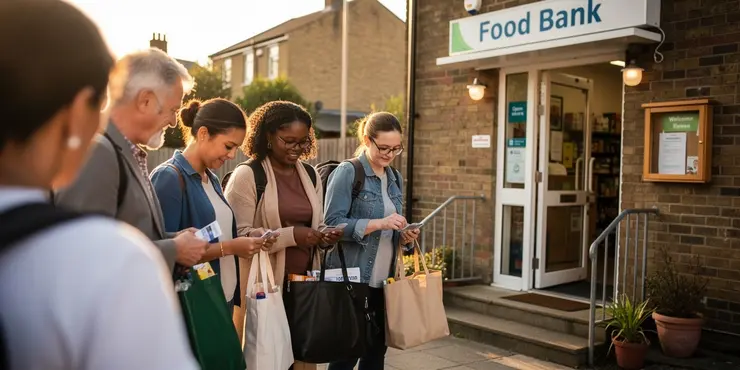
What should I bring with me when visiting a food bank?
Relevance: 27%
-
Have any changes been made regarding the enforcement of visitation rights?
Relevance: 27%
-
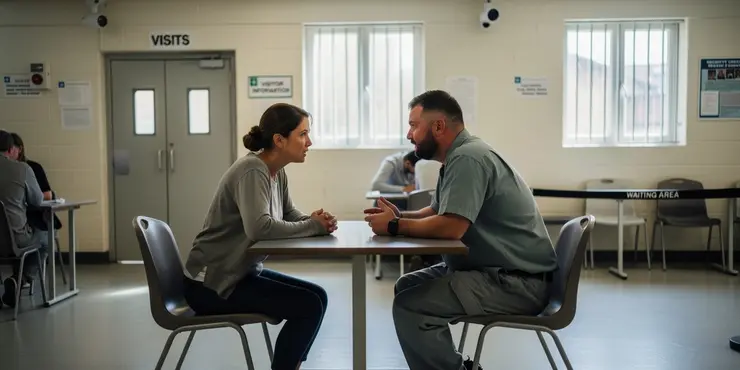
Can I visit them in prison?
Relevance: 26%
-
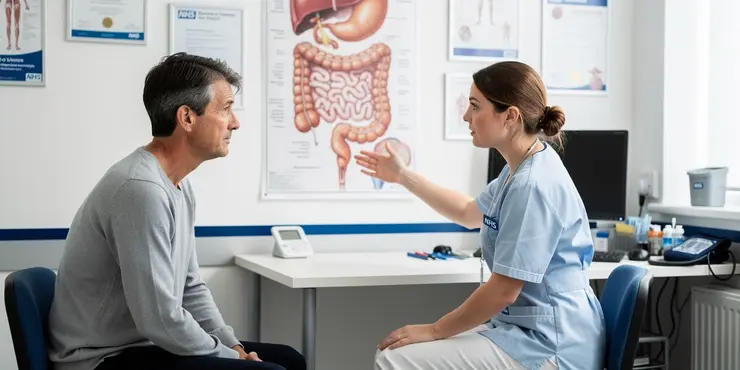
How is Crohn's disease diagnosed?
Relevance: 24%
-
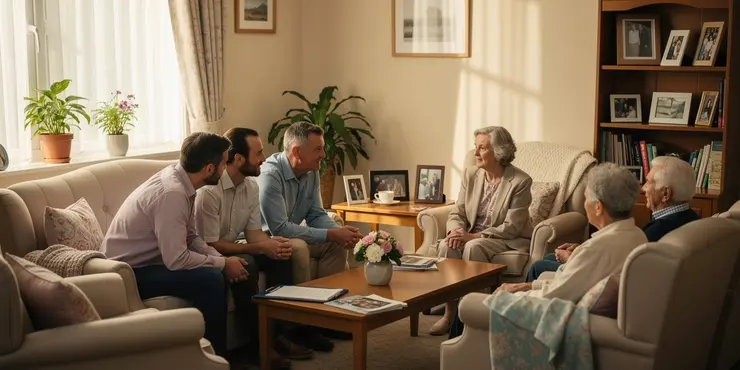
What should families consider when visiting a care home?
Relevance: 24%
-
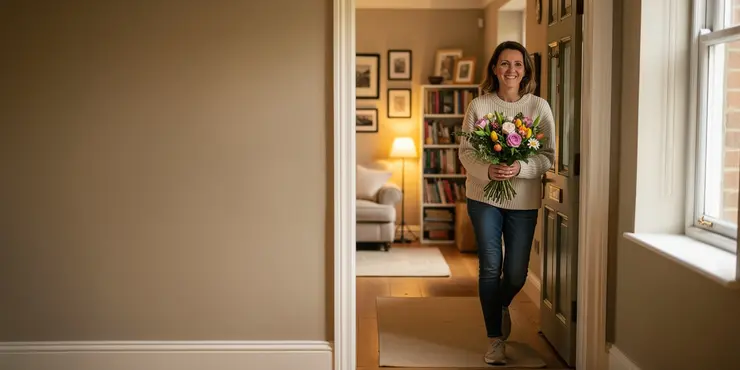
Can I bring gifts when I visit?
Relevance: 24%
-
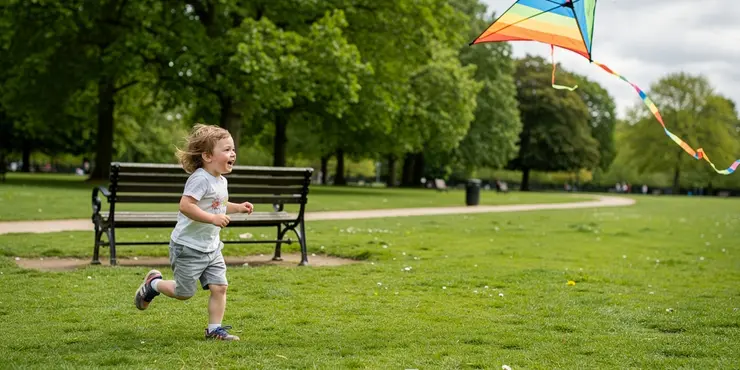
Is childhood obesity a concern in the United Kingdom?
Relevance: 23%
-
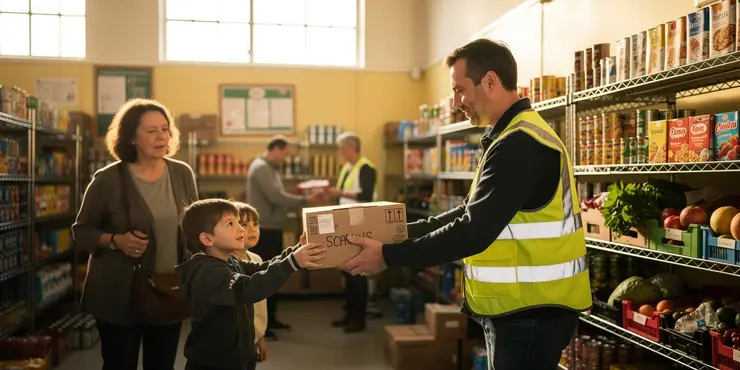
Do I need to make an appointment to visit a food bank?
Relevance: 22%
-
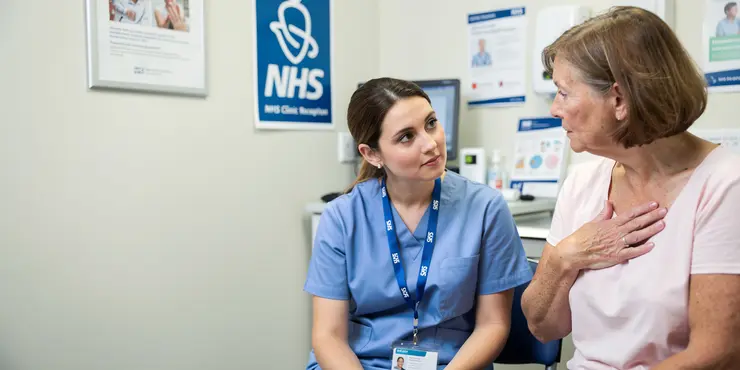
Treating breast pain | United Lincolnshire Hospitals NHS Trust
Relevance: 21%
Your Visit to the Endoscopy Unit at NHS Tayside
Introduction
Visiting the Endoscopy Unit at NHS Tayside might seem daunting, but it is an essential step for diagnosing and managing various GI (gastrointestinal) ailments. This article aims to provide you with comprehensive information, ensuring you know what to expect during your visit.
Preparation for Your Appointment
Before your appointment, you will receive instructions on how to prepare. These may include dietary restrictions, fasting, or taking prescribed laxatives. It is crucial to adhere to these guidelines to ensure the procedure's accuracy and safety.
Arrival and Check-In
On the day of your appointment, arrive at the Endoscopy Unit located within NHS Tayside. Ensure you bring a list of current medications and relevant medical history. The reception staff will guide you through the check-in process and answer any preliminary questions you may have.
The Procedure
An endoscopy can involve either an upper GI endoscopy or a colonoscopy. During the procedure, a thin, flexible tube with a camera will be inserted to examine your GI tract. You may be given a sedative to make the experience more comfortable. The healthcare team will monitor you throughout the procedure to ensure your safety and comfort.
Post-Procedure Care
After the endoscopy, you will be taken to a recovery area. You may experience mild discomfort such as bloating or cramping, but it usually subsides quickly. The medical staff will provide you with aftercare instructions and discuss when you can resume normal activities.
Results and Follow-Up
The findings from your endoscopy will be shared with you either immediately or during a follow-up consultation. This information is vital for diagnosing or ruling out potential conditions, facilitating timely and appropriate treatment.
Conclusion
Understanding the steps involved in your visit to the Endoscopy Unit at NHS Tayside can ease anxiety and help you prepare better. Always follow the healthcare team's advice for the best possible outcomes.
Your Visit to the Endoscopy Unit at NHS Tayside
Introduction
Going to the Endoscopy Unit at NHS Tayside might feel scary. This visit is important because it helps doctors see inside your tummy and understand any problems. This guide will tell you what to expect so you can feel ready.
Preparation for Your Appointment
Before your appointment, you will get instructions on what to do. You might need to eat certain foods, stop eating, or take medicine to clear your tummy. It is very important to follow these steps so the test goes well.
Arrival and Check-In
On the day you go to the Endoscopy Unit, make sure to bring a list of the medicine you take and any important health information. The staff at the front desk will help you check in and answer questions.
The Procedure
An endoscopy means the doctor will use a small camera on a tube to look inside your tummy. You might get medicine to help you relax. The doctors and nurses will watch you to make sure you are okay.
Post-Procedure Care
After the endoscopy, you will rest in a recovery area. You might feel a bit of a tummy ache, but it usually goes away fast. The staff will tell you how to take care of yourself at home and when you can start normal activities again.
Results and Follow-Up
The results from your endoscopy will be shared with you right away or at another visit. Knowing the results helps doctors decide what treatment is best for you.
Conclusion
Knowing what will happen during your visit to the Endoscopy Unit at NHS Tayside can help you feel less worried. Follow the advice from the healthcare team to make sure everything goes well.
Frequently Asked Questions
What is an endoscopy?
An endoscopy is a medical procedure that allows doctors to look inside your body using a thin, flexible tube called an endoscope. The endoscope has a light and a camera attached to it, enabling the doctor to view images of the inside of your body on a screen.
Why do I need an endoscopy?
You may need an endoscopy to diagnose the cause of symptoms such as persistent pain, difficulty swallowing, or gastrointestinal bleeding. It can also help doctors to take tissue samples (biopsies) or perform certain treatments.
How do I prepare for my endoscopy?
Preparation varies depending on the type of endoscopy. Generally, you will need to fast for 6-8 hours beforehand. Detailed instructions will be provided by the endoscopy unit prior to your procedure.
Can I take my medications before the endoscopy?
Some medications may need to be paused prior to an endoscopy. It is important to discuss this with your doctor or the medical team at NHS Tayside to receive specific advice based on your medications and medical history.
How long does the procedure take?
The duration of an endoscopy procedure varies, but it typically takes between 15 and 45 minutes. You may need to spend additional time in the unit for preparation and recovery.
Will I be awake during the endoscopy?
Patients are usually given a sedative to help them relax, and some may also receive a local anaesthetic to numb a specific area. This means you may be awake but comfortable and drowsy.
What should I do after the endoscopy?
You will be monitored in the recovery area until the sedative wears off. It is advised to arrange for someone to take you home, as you should not drive or operate machinery for 24 hours after the procedure.
Are there any risks associated with an endoscopy?
Endoscopies are generally safe but can carry some risks such as bleeding, infection, or perforation of the examined area. These risks are low, and the medical team will discuss them with you prior to the procedure.
Will I get the results of my endoscopy immediately?
Some results may be available immediately after the procedure, but if tissue samples or biopsies were taken, these will need to be sent to a laboratory and could take a few days or longer. Your doctor will inform you of when to expect the results.
Can I eat or drink after the endoscopy?
You will usually be able to eat and drink normally a few hours after the procedure, once the sedative has worn off. However, follow the specific advice provided by your doctor or nurse.
How do I get to the Endoscopy Unit at NHS Tayside?
Directions to the Endoscopy Unit will be provided in your appointment letter. If you are unsure or need assistance, contact the unit directly for guidance.
What should I bring to my endoscopy appointment?
Bring your appointment letter, a list of your current medications, your GP details, and any relevant medical records. It is also advisable to bring a friend or relative to accompany you.
Will I need to stay overnight in the hospital?
Endoscopies are usually done on an outpatient basis, meaning you will go home the same day. However, complex procedures or underlying health conditions might require an overnight stay.
How should I feel the day after my endoscopy?
You might experience mild discomfort such as a sore throat, bloating, or cramping, which should improve within a day or two. Contact the unit if you experience severe pain, fever, or heavy bleeding.
How do I contact the Endoscopy Unit with further questions?
Contact details for the Endoscopy Unit, including phone numbers and operating hours, will be provided in your appointment letter. You can also visit the NHS Tayside website for more information.
What is an endoscopy?
An endoscopy is when a doctor looks inside your body. They use a long, thin, flexible tube with a camera. The tube goes through your mouth down into your body.
The doctor uses this to check if everything inside is healthy.
You might feel worried about having an endoscopy. It's okay to talk to someone about your feelings.
Try taking deep breaths to help you feel calm.
An endoscopy is a test that helps doctors look inside your body. They use a thin, bendy tube called an endoscope. This tube has a light and a camera on it. The camera shows pictures of inside your body on a screen.
Why do I need a look inside my body?
An endoscopy is a way for a doctor to look inside your body.
This helps the doctor find out what is wrong. It can help find why you have a tummy ache or if something else is wrong.
It's like using a special camera to check if everything inside is okay.
If you want more help to understand, you can:
- Ask someone to explain it to you.
- Look at pictures or videos about endoscopy.
- Talk to your doctor or nurse.
You might need a test called an endoscopy to find out why you have certain problems, like ongoing pain, trouble swallowing, or bleeding in your tummy areas. It also helps doctors to take small pieces of tissue to look at (these are called biopsies) or to do some treatments.
If you find reading difficult, try using tools like text-to-speech apps, which can read the words out loud for you. You can also ask someone to read along with you to help understand better.
How do I get ready for my endoscopy?
An endoscopy is when a doctor looks inside your body with a camera.
Here are some easy steps to get ready:
- Ask your doctor what you need to do.
- You might need to stop eating or drinking hours before. Ask what time.
- Tell your doctor about any medicine you take.
- If you feel worried, talk to someone you trust.
Using a calendar or alarm can help you remember what to do.
Getting ready for an endoscopy is different for each person. Most of the time, you should not eat or drink for 6 to 8 hours before. The doctors will give you specific steps to follow before your endoscopy.
If you find it hard to remember or follow instructions, you can try using a calendar or setting reminders on your phone. You might also ask someone you trust, like a family member or friend, to help remind you.
Can I take my medicine before the endoscopy?
It is important to know if you can take your medicine before an endoscopy. An endoscopy is a test doctors use to look inside your body.
Here are some steps to help you:
- Ask your doctor or nurse: They can tell you if you should take your medicine or not.
- Use a reminder: A calendar or alarm can help you remember what the doctor said.
Tools that can help:
- Use a checklist: Write down what your doctor or nurse says about each medicine.
- Ask a friend or family member to help you remember.
Always check with your doctor to stay safe and healthy.
Some medicines might need to be stopped before an endoscopy. Talk to your doctor or the medical team at NHS Tayside. They can give you advice on what to do with your medicines.
How much time does it take?
Having an endoscopy can take between 15 and 45 minutes. You might need to stay a bit longer to get ready before the test and to rest afterward.
Will I be awake during the endoscopy?
When you have an endoscopy, the doctor looks inside your body. You might get medicine to make you sleepy. This means you may not be awake for the test. Some people stay awake, but feel very relaxed.
If you are worried or have questions, talk to your doctor or nurse. They can help explain what will happen.
Using tools like videos or picture books can help you understand better. Ask someone you trust to read with you if it helps.
Doctors give people medicine to help them relax. This is called a sedative. Sometimes, they also give medicine to make a small part of the body feel numb. This is called a local anaesthetic.
This means you might be awake, but you will feel comfy and sleepy.
What should I do after the endoscopy?
When the endoscopy is over, there are a few things you should do:
- Rest: You might feel tired, so take it easy for the day. It's okay to lie down and relax.
- Eat and drink: Start with light food like soup or toast. Drink water to stay hydrated.
- Take care: Follow the doctor's advice. You may need someone to help you.
- Ask questions: It's okay to ask the nurse or doctor if you have any worries or questions.
Remember to use simple reminders like phone alarms or sticky notes to help you with the steps above. You can also ask a family member or friend to help you remember what to do.
You will stay in the recovery area until you feel better. It is a good idea to have someone take you home. You should not drive or use machines for 24 hours after the procedure.
Are there any dangers with having an endoscopy?
An endoscopy is a test where doctors look inside your body. Doctors use a long, thin, flexible tube and a tiny camera.
There are some small risks with an endoscopy. These might be:
- Feeling sore in the throat after.
- Feeling very sleepy from the medicine.
- Bleeding a bit where the tube went in.
Doctors and nurses will take care of you to make sure you are safe. It can help to:
- Talk to the doctor if you are worried.
- Have someone with you to take you home.
- Rest afterward and drink fluids.
If you have more questions, ask your doctor or nurse. They are there to help you feel better.
Doctors think endoscopies are safe. But sometimes, they can cause problems like bleeding, infection, or a small hole in the area they check. These problems do not happen often. Before the test, the doctor and their team will talk to you about these risks.
Will I find out my endoscopy results right away?
You might get some answers right after the procedure. But if the doctor took tissue samples or biopsies, these need to go to a lab. It might take a few days or even longer to get these results. Your doctor will tell you when to expect them.
Can I eat or drink after the endoscopy?
After an endoscopy, you may feel sleepy or not hungry. Don't worry, this is normal. Here’s what you can do:
- Wait until your doctor or nurse says it is okay to eat or drink.
- Start with small sips of water.
- Then try eating soft foods like soup or yogurt.
- If you feel okay, you can eat your normal food.
If you are not sure about what to do, ask someone who can help. It might be good to have a friend or family member nearby. They can help if you have any questions.
You can eat and drink like normal a few hours after the procedure. This is when the medicine that makes you sleepy goes away. But make sure to listen to what your doctor or nurse tells you to do.
How do I find the Endoscopy Unit at NHS Tayside?
Here is how you can get to the Endoscopy Unit:
- Ask for help or directions at the hospital information desk.
- Look for signs inside the hospital that say "Endoscopy Unit".
- If you have a map of the hospital, use it to find the unit.
Other tips:
- You can take someone with you for support.
- Use a wheelchair or walking aid if you need help moving around.
You will get directions to the Endoscopy Unit in your appointment letter. If you are not sure or need help, call the unit. They will guide you.
What to Take to Your Endoscopy Appointment?
Here is what you need to bring when you go for your endoscopy:
- Health Card: Take your health card, like a medical ID card.
- Doctor Papers: Bring any papers your doctor gave you about the appointment.
- List of Medicines: Write down the names of any medicines you are taking.
- Comfortable Clothes: Wear clothes that are easy to take off and put on.
- Someone to Go with You: Ask a friend or family member to come with you, as you might need help after the appointment.
If you need help reading, you can:
- Use pictures or drawings to understand better.
- Ask someone to read the list with you.
Bring your appointment letter. Also, bring a list of the medicines you take now. Bring your doctor's name and address, and any important medical papers. It can be helpful to bring a friend or family member with you.
Do I have to sleep at the hospital?
When you have an endoscopy, you usually go home the same day. This is called "outpatient." But, if the doctor needs to do something more complicated, or if you have other health problems, you might need to stay overnight at the hospital.
How will I feel the day after my endoscopy?
After your endoscopy, you might feel a bit sleepy and tired. This is normal. You could also have a sore throat. It should get better soon. Drink plenty of water and rest.
If you still feel unwell or have any worries, tell an adult or call your doctor. You can also use a picture diagram or ask someone to help explain your feelings.
You might feel a little sore in your throat. Your tummy might feel big, or it might hurt a bit. This should get better in a day or two. If you have really bad pain, a high temperature, or a lot of bleeding, call the doctor.
How can I talk to the Endoscopy Unit if I have more questions?
If you want to ask the Endoscopy Unit anything, you can call them or send them an email. It's a good idea to write down your questions before you call or email. You can also ask a friend or family member to help you.
Here are some tips to help you:
- Use a phone with a speaker if you need to type while talking.
- Ask someone to sit with you while you call, so they can help you remember things.
Your appointment letter will have the contact details for the Endoscopy Unit. This includes phone numbers and the times they are open. You can also find more information on the NHS Tayside website.
Useful Links
This website offers general information and is not a substitute for professional advice.
Always seek guidance from qualified professionals.
If you have any medical concerns or need urgent help, contact a healthcare professional or emergency services immediately.
Some of this content was generated with AI assistance. We’ve done our best to keep it accurate, helpful, and human-friendly.
- Ergsy carfully checks the information in the videos we provide here.
- Videos shown by Youtube after a video has completed, have NOT been reviewed by ERGSY.
- To view, click the arrow in centre of video.
- Most of the videos you find here will have subtitles and/or closed captions available.
- You may need to turn these on, and choose your preferred language.
- Go to the video you'd like to watch.
- If closed captions (CC) are available, settings will be visible on the bottom right of the video player.
- To turn on Captions, click settings .
- To turn off Captions, click settings again.
More Items From Ergsy search
-

Your Visit to the Endoscopy Unit at NHS Tayside
Relevance: 100%
-

Endoscopy Unit
Relevance: 84%
-

Coming to the Endoscopy Unit at Harrogate District Hospital
Relevance: 76%
-

MTW Endoscopy service and training hub
Relevance: 58%
-

What is an endoscopy?
Relevance: 55%
-

Endoscopy video preview
Relevance: 55%
-

Endoscopy Introduction - The Patient Journey
Relevance: 52%
-

Mark Lancaster Patient Experience Leeds Endoscopy
Relevance: 52%
-

A guide to the new Endoscopy Suite at Chesterfield Royal Hospital NHS Foundation Trust
Relevance: 47%
-

Bournemouth Digestive Diseases Centre: Endoscopy Procedure
Relevance: 47%
-

Vale Stroke Unit
Relevance: 40%
-

Visiting a Prisoner - What To Wear on a prison visit
Relevance: 38%
-

Endoscopy Procedures | Colonoscopy
Relevance: 37%
-

Having chemotherapy and other treatments in the Day Treatment Unit
Relevance: 33%
-

Are there mosquitoes in the United Kingdom?
Relevance: 32%
-

Your stay on the Intensive Care Unit at North Bristol NHS Trust
Relevance: 32%
-

Are there Mosquitos in the United Kingdom?
Relevance: 32%
-

What are the visiting hours for care homes?
Relevance: 31%
-
How often should I visit the dentist?
Relevance: 31%
-

Tour of the Sickle Cell and Thalassaemia Unit at City Hospital | SCaT
Relevance: 30%
-

How often can I visit someone in prison?
Relevance: 30%
-

Can I visit a USCIS office to inquire about my immigration status?
Relevance: 30%
-
What is the impact of the 2026 changes on grandparent visitation rights?
Relevance: 30%
-

What should I expect when visiting a prison?
Relevance: 30%
-
How often should I visit my NHS dentist?
Relevance: 29%
-

How often can I visit a food bank?
Relevance: 29%
-

Is ketamine considered a controlled substance in the United States?
Relevance: 29%
-

Is childhood obesity a concern in the United Kingdom?
Relevance: 28%
-

Will I need a follow-up visit after my hair transplant in Turkey?
Relevance: 28%
-

Navigating Child Custody and Visitation Rights in Modern UK
Relevance: 27%
-

What if I can't physically visit a food bank?
Relevance: 27%
-

What should I bring with me when visiting a food bank?
Relevance: 27%
-
Have any changes been made regarding the enforcement of visitation rights?
Relevance: 27%
-

Can I visit them in prison?
Relevance: 26%
-

How is Crohn's disease diagnosed?
Relevance: 24%
-

What should families consider when visiting a care home?
Relevance: 24%
-

Can I bring gifts when I visit?
Relevance: 24%
-

Is childhood obesity a concern in the United Kingdom?
Relevance: 23%
-

Do I need to make an appointment to visit a food bank?
Relevance: 22%
-

Treating breast pain | United Lincolnshire Hospitals NHS Trust
Relevance: 21%


